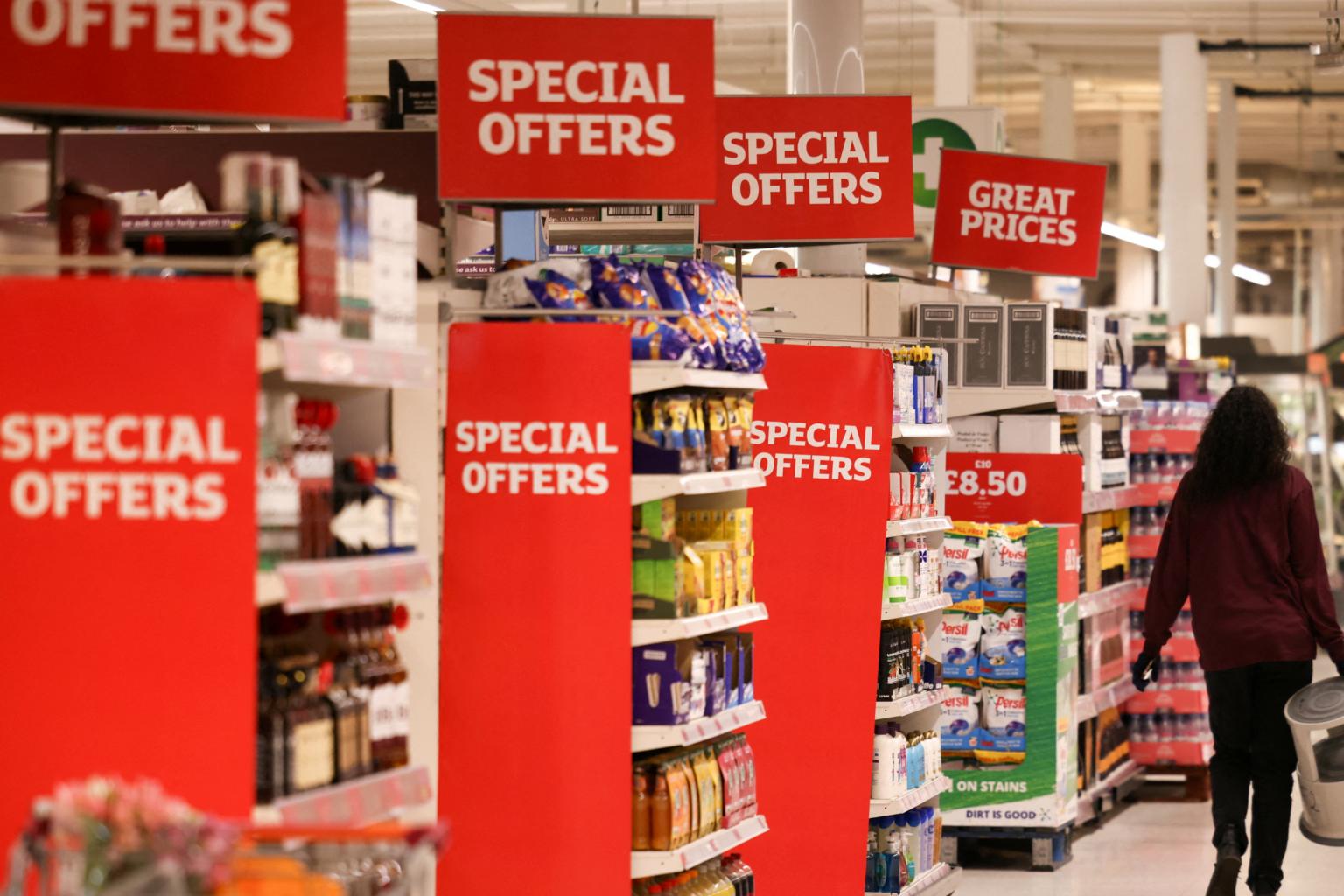UK inflation hits new 40-year high of 9.4% as living standards crisis worsens
Sign up now: Get ST's newsletters delivered to your inbox

Consumer prices in Britain rose 9.4 per cent from a year earlier, the biggest increase since 1982.
PHOTO: REUTERS
Follow topic:
LONDON (BLOOMBERG) - UK inflation hit a new 40-year high in June, intensifying the cost of living crisis and heaping pressure on the Bank of England (BOE) to deliver an aggressive interest rate increase next month.
Consumer prices rose 9.4 per cent from a year earlier, the biggest increase since February 1982, the Office for National Statistics said on Wednesday (July 20). The acceleration from 9.1 per cent in May was driven by a 9.3 per cent surge in the price of motor fuel over the month.
Prices are now rising far more quickly than wages. The pain for households is set to get worse, with inflation forecast to top 11 per cent in October when another energy price hike kicks in. On Tuesday, unions representing public sector workers threatened further strikes after the government offered pay increases that amounted to a significant cut in real terms.
“Inflation is likely to stay high for the rest of this year, severely eating into strained household incomes,” said Ms Anna Leach, deputy chief economist at the Confederation of British Industry.
The squeeze on living standards is the main battleground in the contest to succeed Prime Minister Boris Johnson, who announced his resignation this month following a rebellion of his own Conservative Party over a succession of scandals.
Of the three candidates remaining, two have promised billions of pounds of tax cuts to help hard-pressed families and spur businesses investment.
While lowering taxes may boost an economy at risk of sliding into recession, doing so also risks fanning inflation and extending the BOE’s rate-rise cycle.
The tightening squeeze on consumer spending power is starting to sap growth, slowing the recovery from the Covid-19 pandemic. Finance directors of British companies are bracing for a more protracted downturn, with a survey by Deloitte showing many expect a recession.
“The intense cost of living squeeze means the risk of recession is high,” said Mr Hussain Mehdi, macro strategist at HSBC Asset Management.
Rising prices went beyond fuel into many segments of the economy, notably hospitality. Restaurants and accommodation rose by 8.6 per cent in the year to June 2022, up from 7.6 per cent in May.
Food and non-alcoholic beverage prices surged by 9.8 per cent from a year ago, the most since March 2009.
The core consumer price index (CPI) , excluding food, drink, tobacco and energy, rose 5.8 per cent from a year ago in June. That is down from 6.2 per cent in April. The CPI measure for all services rose by 5.2 per cent to the highest in at least a decade.
BOE policymakers are worried that elevated inflation could become entrenched if rising wage and raw material costs force companies to keep hiking prices.
In his annual Mansion House speech in London last night, BOE governor Andrew Bailey floated the possibility of a half-point rate increase in August as the central bank steps up its battle to bring inflation back to the 2 per cent target. If delivered, it would mark the first half-point increase since the BOE gained independence in 1997.
Officials have increased the benchmark rate five times since December to 1.25 per cent, and money markets are pricing in 3 per cent by the end of the year.
The latest figures show further signs of inflationary pressures building at the wholesale level at a pace slightly higher than economists had expected.
Raw material costs surged 24 per cent in the year through June, the most since records began in 1985. That was driven by a leap in the cost of metals. Manufacturers responded by raising their own prices by 16.5 per cent, the most since 1977. The price of food products made a big contribution.

